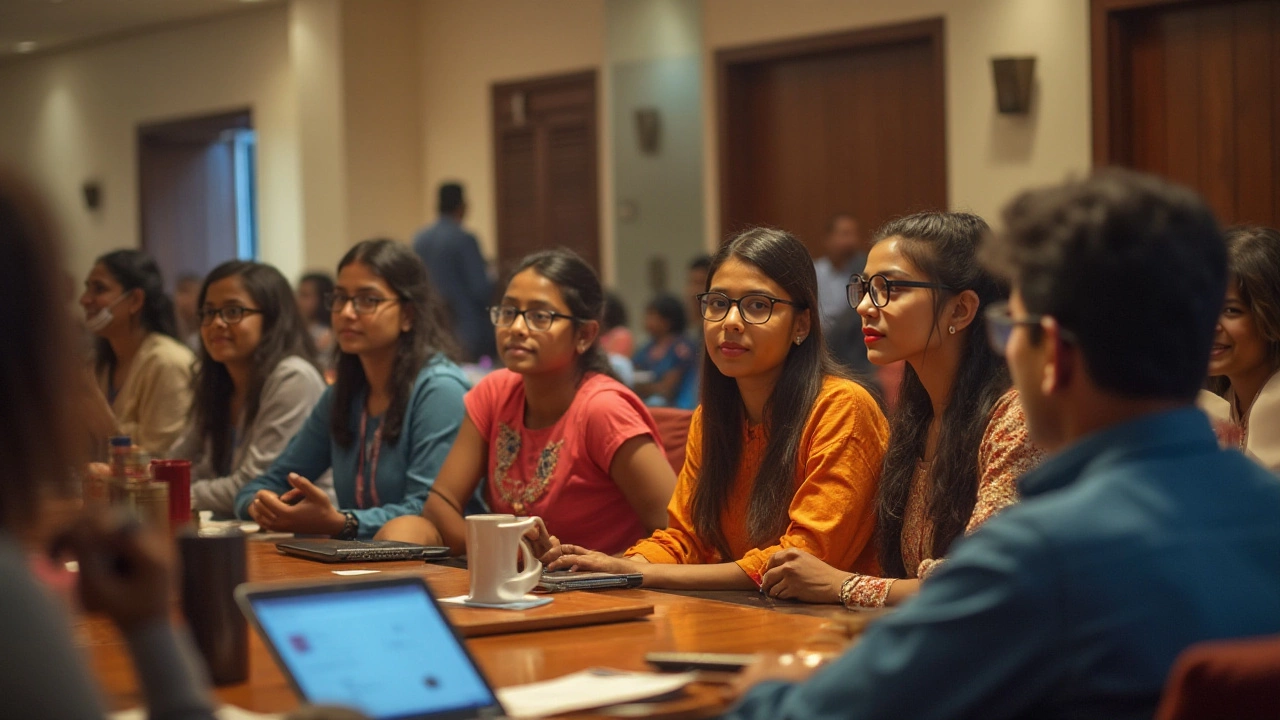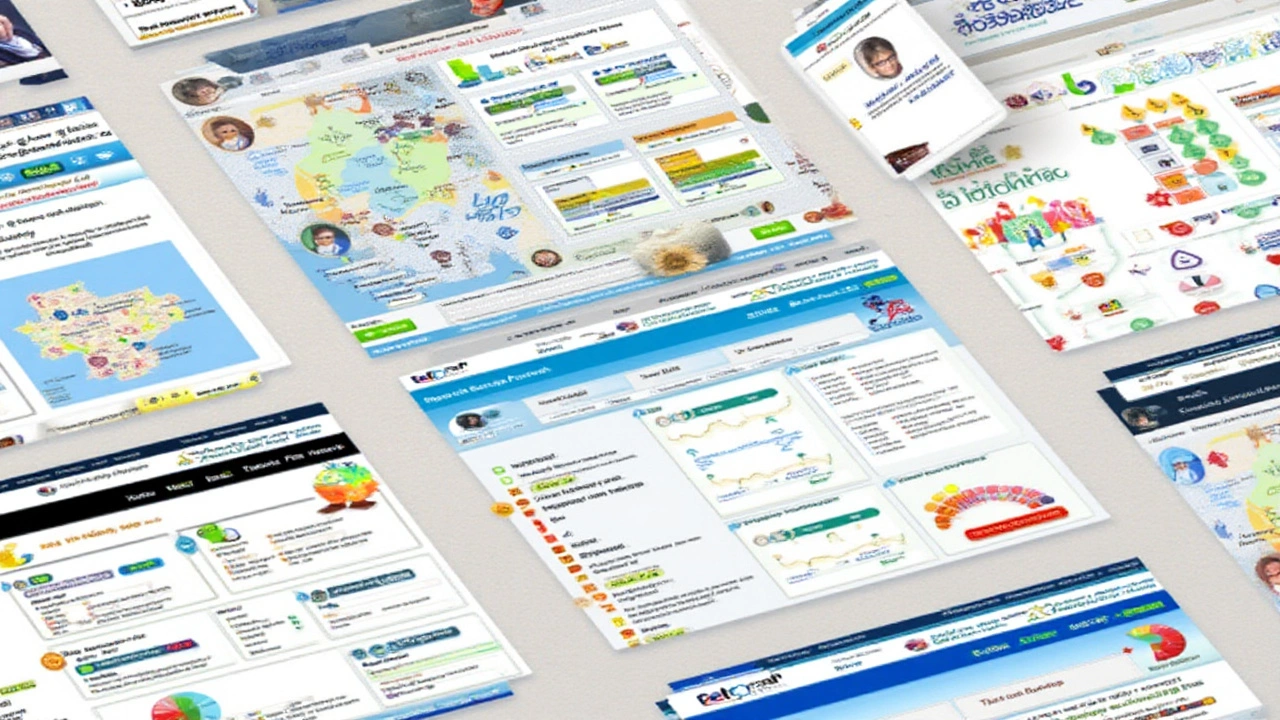
Finding a job in local government can often feel like navigating a complex maze. With so many applicants vying for a limited number of positions, it’s crucial to have a clear plan and the right insights. Local government roles attract a diverse range of candidates, from recent graduates to seasoned professionals, so understanding what makes you stand out is key.
Start by familiarizing yourself with the unique structure of the local government job market. Each municipality may have different preferences and procedures when it comes to hiring, so research is your best friend. Assess the essential qualifications and preferred skills that are consistently sought after in these roles.
Once you've identified your target positions, crafting a standout application is your next step. This involves not only detailing your relevant experiences but also tailoring your resume and cover letter to align with the specific values and missions of the local government you're applying to. Dive into interview preparation, understanding common questions, and emphasizing how your background matches the specific demands of the position in question.
While competence and qualifications are crucial, never underestimate the power of networking. Building relationships within the community and engaging with current professionals can provide insights and opportunities that might not be apparent otherwise. Each step in this journey is about showcasing your genuine interest and aligning your personal values with that of the public service you aim to join.
- Understanding the Local Government Job Market
- Essential Qualifications and Skills
- Preparing Your Application
- Interview Strategies for Success
- The Importance of Networking
Understanding the Local Government Job Market
The local government job market is a unique blend of stability, community involvement, and varied opportunities across fields. Each municipality possesses its distinct characteristics, ranging from rural townships to bustling urban centers, impacting the types of roles available. While some areas may focus on agriculture and land management, others might prioritize transportation, housing, or environmental sustainability. Such variations mean that candidates need to tailor their job search to align with the specific needs and focus areas of the community they are considering joining. This diversity in opportunity is often underpinned by the communal nature of local government work, fostering a sense of purpose rooted in public service and contribution to local society.
Positions in local government are known for their competitive nature, attracting a wide pool of applicants who are drawn by the promise of job security, benefits, and the chance to effect tangible change. The competition is often fierce, not only due to the attractive aspects of these roles but because they are seen as a stable employment option in economically uncertain times. Local governments value applicants who bring a mix of expertise, flexibility, and a genuine commitment to public service. They often favor candidates who display a deep understanding of local issues and who are keen to collaborate with diverse stakeholders.
To comprehend the intricacies of the local government job market, it's beneficial to understand the prevalent hiring processes and timelines. According to a report by the Local Government Association, recruitment can be as short as a few weeks or extend over several months, depending on the level of expertise required and the budgetary approvals needed for new positions. This variability necessitates patience and preparedness among job seekers, as well as a strategic approach to applying for multiple positions simultaneously to improve chances of securing a desired role.
"Understanding the local nuances and key economic drivers within a region can greatly enhance an applicant's prospects," says John Smith, a seasoned HR manager with over two decades of experience in municipal hires. "There's value in showing potential employers that you're not just looking for a job, but that you understand and are ready to advocate for community-specific goals."
One of the notable aspects of the local government jobs market is its adaptability to societal changes and technological advancements. Local administrations are constantly evolving to meet new challenges, whether they be in the realms of digital governance, climate change mitigation, or enhancing civic participation through technology. Job seekers should be aware of these trends and demonstrate how their skills and experiences align with such forward-looking objectives. Building a knowledge base that intersects across multiple areas, such as administration, technology, and public policy, can be advantageous.
A closer analysis of job types reveals positions ranging from policy advisors and urban planners to public health officials and IT specialists, each requiring different skill sets yet unified by a core mission of serving the public interest. This diversity necessitates that applicants possess not only specialized skills but also the soft skills essential for collaboration and problem-solving. Candidates should seek out professional development opportunities and courses that bolster both their technical and interpersonal abilities, making them more attractive to potential government employers.
Essential Qualifications and Skills
When it comes to landing a position in the local government jobs sector, possessing the right qualifications and skills is non-negotiable. These jobs often require a combination of relevant educational background, professional experience, and a specific set of competencies that align with public service. Often, roles demand at least a bachelor's degree pertinent to the field, such as public administration, political science, or urban planning. In some cases, specialized roles might require advanced degrees. Nonetheless, beyond academic qualifications, practical experiences such as internships or volunteer work in government-related settings can significantly bolster a candidate's profile, offering a glimpse into the workings of public service.
Specific skills tend to be highly valued by these employers, and communication ranks high on the list. Whether it's drafting public policy or interacting with diverse community groups, being articulate and adept at conveying ideas and details is crucial. Equally important is analytical thinking, which allows professionals to assess the needs and demands of the community and respond strategically. Problem-solving aptitude is indispensable as government roles often require addressing complex societal issues innovatively. Furthermore, technological savviness, particularly in data management and software applications pertinent to governmental operations, is increasingly in demand, considering the digitalization trends in public administration.
The Demand for Soft Skills
While technical skills are crucial, soft skills can be just as vital in thriving within government careers. Emotional intelligence and teamwork contribute immensely to forming productive relationships in a diverse workplace. Perseverance and adaptability are also necessary, given the bureaucratic nature of government work where changes can be slow and regulations can pose challenges to swift action. Innovation and creativity, surprisingly, also hold significant weight as municipalities seek progressive solutions to improve public services and living conditions. A quote by Thomas Jefferson aptly highlights the need for a devoted workforce:
"That government is the strongest of which every man feels himself a part."Actively engaging with community dynamics empowers local government employees to effect subtle yet impactful changes within their jurisdiction.
To provide a clear picture of the expected qualifications across various local office roles, consider this:
| Role | Minimum Education | Skills Required |
|---|---|---|
| Urban Planner | Master's in Urban Planning | Analytical Thinking, GIS Software Proficiency |
| Public Relations Officer | Bachelor's in Communications | Public Speaking, Media Relations |
| Finance Officer | Bachelor's in Finance/Accounting | Financial Management, Budget Analysis |

Preparing Your Application
When it comes to securing a role in local government, the application process is your first opportunity to make a good impression. This step goes beyond simply filling out a form—it's about crafting a narrative that aligns your skills with the needs of the community you wish to serve. Understanding what is required is the foundational first step. Many government careers demand specific qualifications, like degrees in public administration or related fields, but experience and proven problem-solving skills can often be just as valuable, if not more so.
Having a standout application begins with tailoring your resume and cover letter to the job description. Each section of these documents should resonate with the specific responsibilities and functions of the role. Research the core values of the department or agency to which you are applying and weave these into your narrative, demonstrating both alignment and understanding. Going a step further, highlight any direct experiences you have that exemplify these values in action—this might mean discussing past roles in public service, volunteer work, or specific coursework.
For many, compiling a comprehensive application also means leveraging any relationships you've cultivated within the sector. Whether through past professional engagements or networking events, a well-placed recommendation or referral can provide a significant advantage. As emphasized by career expert John Smith, "In competitive fields, personal connections are invaluable—letting your network know what you are looking for can yield opportunities that are never posted publicly."
An often overlooked component of the application process is the supplemental questions or essays many local governments require. These questions are another opportunity to showcase your experience and passion for public service. Treat them as mini-essays, crafting each response with care and ensuring they are succinct yet thorough. Address how your past work has equipped you with the necessary skills, and use this space to express your dedication to civic engagement and community impact.
If applicable, be sure to track your application through the local government's applicant portal. This not only helps you stay informed of your status but also demonstrates your proactive approach to the hiring process. Keep your contact information updated and be prepared for each stage that might follow a successful application, such as written exams or interview phases. By approaching each step with diligence, you set the stage for a successful entry into local government jobs.
Interview Strategies for Success
Stepping into an interview for a local government job requires a mix of confidence, preparation, and adaptability. Each interview is an opportunity not just to answer questions but to effectively communicate your suitability for the role and how your skills align with the department's mission. Preparation should begin with understanding the specific job description and researching the agency's goals and current projects. It is essential to grasp the organization's impact on the community and how you can contribute to its success. The more you know about the potential employer, the better you can tailor your responses to reflect their values and objectives.
One of the keys to acing the interview is mastering the art of storytelling. When asked to describe past experiences, remember to convey them as narratives that demonstrate your problem-solving skills, resilience, and leadership capabilities. For instance, if you've been part of a voluntary group addressing environmental issues, link such experience to how it enhances your candidacy for a sustainable development role. Address each question not as a stand-alone query but as part of the larger conversation about your career path and professional traits.
It’s also invaluable to practice common interview questions. Typically, questions will pivot around your understanding of local governance, examples of conflict resolution, and scenarios where you had to liaise with diverse community groups. Consider taking a mock interview with a friend or mentor to refine your delivery and increase your comfort level. You'd be amazed at how often topics like budget management or ethical decision-making come up, so having anecdotes related to these topics at your fingertips is a good strategy.
Listen actively during the interview. Engage with the questions, and don't hesitate to ask clarifying questions if needed. It’s a two-way street: while they’re assessing your fit, you’re also gauging if this role aligns with your career aspirations. When it’s your turn to ask questions, have thoughtful queries prepared. This not only shows your interest in the role but demonstrates critical thinking skills that employers in government careers look for.
Lastly, showcase your enthusiasm for public service and community improvement, as those are vital attributes that resonate well within government careers. A quote from John F. Kennedy resonates here:
"Ask not what your country can do for you – ask what you can do for your country."This sentiment captures the spirit and dedication required for a public sector interview, emphasizing a commitment to contributing positively to society. These strategic elements, when combined, can significantly improve your chance of landing a government role.

The Importance of Networking
Networking is an invaluable asset in your quest for a career in local government jobs, serving as a bridge that connects you to untapped opportunities and insights. Many local government positions are filled not solely based on formal applications but often due to recommendations and connections that potential candidates have established. Building a network isn’t just about knowing people; it’s about creating meaningful relationships that allow you to better understand the inner workings of the government sector. This inside knowledge can be pivotal, especially when deciphering the subtle nuances of policy-making and governance which are essential for many roles.
Attending community events is a practical starting point to expand your network. Such gatherings, from city council meetings to neighborhood associations, present opportunities to meet local officials and other key players. This type of consistent engagement demonstrates a genuine interest in community affairs, which can make a strong impression. Volunteering for civic projects or initiatives is another strategy that can significantly enhance your visibility and credibility. As you volunteer, not only do you contribute positively to the community, but you also gain first-hand experience of the public service ethos, which employers highly value.
"It's not just about who you know, but who knows you," says John Smith, a veteran in local government hiring practices. This perspective highlights the reciprocal nature of networking, where being known for your contributions and ethos can open doors that might otherwise remain closed.
Leveraging social media platforms, particularly LinkedIn, is also crucial in the digital age. Join groups dedicated to local government issues and participate actively in discussions. Sharing relevant content and insights establishes you as a knowledgeable participant, not just an observer. However, it’s essential to strike a balance between virtual and face-to-face interactions. In local government sectors, personal rapport is often more valued than online connections, reinforcing the notion of trust and reliability.
For those transitioning from other fields into government careers, networking provides a competitive edge. Engaging with professionals who have successfully made similar transitions can offer guidance and insider tips. These mentors can illuminate unwritten rules or common hurdles, equipping you with strategies that align with your background and skills. As you build your network, focus on creating a diverse web of contacts. Rather than concentrating solely on high-ranking officials, include peers, subordinates, and even those in non-related fields who understand the local governance landscape.
Utilizing your existing connections is another strategy not to be overlooked. Inform friends, family, and colleagues about your interest in government careers. You never know who might have the perfect lead or insight. Encourage them to introduce you to relevant contacts in their circles. Even a casual conversation can yield surprising results, opening up pathways to potential employment opportunities or collaborations.
The importance of networking in securing local government positions cannot be understated. It prepares you to step confidently into interviews, armed with insights and relationships that demonstrate your commitment and engagement. Ultimately, your network reflects your involvement and passion for public service, qualities that local government employers deeply appreciate and seek out in their candidates.
